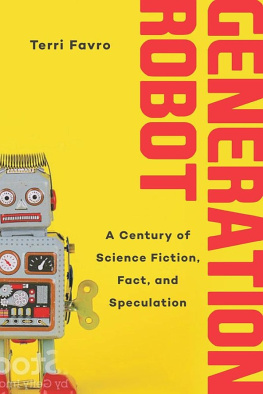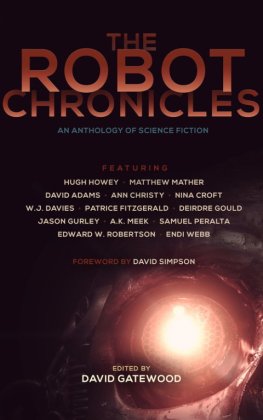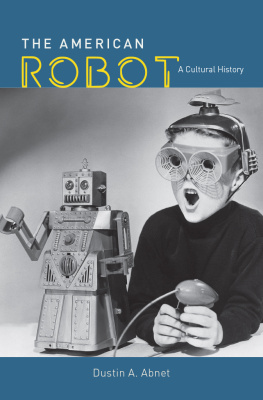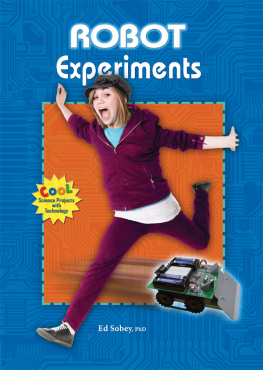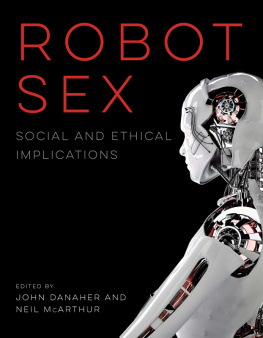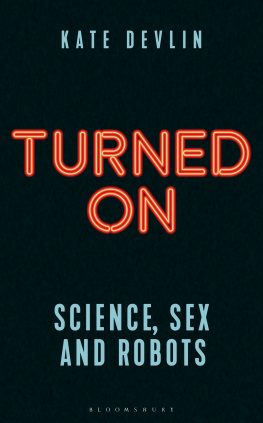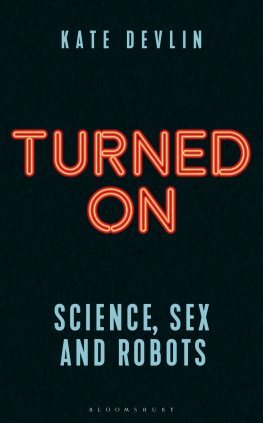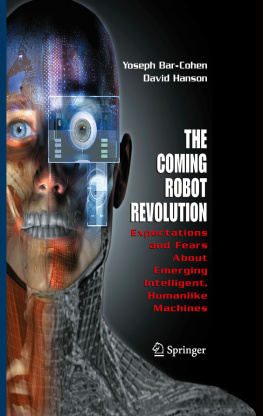Copyright 2018 by Terri Favro.
All rights reserved. No part of this book may be reproduced in any manner without the express written consent of the publisher, except in the case of brief excerpts in critical reviews or articles. All inquiries should be addressed to Skyhorse Publishing, 307 West 36th Street, 11th Floor, New York, NY 10018.
Skyhorse Publishing books may be purchased in bulk at special discounts for sales promotion, corporate gifts, fund-raising, or educational purposes. Special editions can also be created to specifications. For details, contact the Special Sales Department, Skyhorse Publishing, 307 West 36th Street, 11th Floor, New York, NY 10018 or info@skyhorsepublishing.com.
Skyhorse and Skyhorse Publishing are registered trademarks of Skyhorse Publishing, Inc., a Delaware corporation.
Visit our website at www.skyhorsepublishing.com.
10 9 8 7 6 5 4 3 2 1
Library of Congress Cataloging-in-Publication Data is available on file.
Cover design by Erin Seaward-Hiatt
Cover Image: IStock
Print ISBN: 978-1-5107-2310-8
Ebook ISBN: 978-1-5107-2312-2
Printed in the United States of America
In memory of Attilio Tee Favro
Roboticist, inventor, father
CONTENTS
I sometimes think that, in the desperate straits of humanity today, we would be grateful to have nonhuman friends, even if they are only friends we build ourselves.
Isaac Asimov
Introduction

WHY ROBOTS?
Once, they promised us the moon
We grew up knowing that nuclear bombs could destroy Earth, but also that we could escape to other worlds. Seesawing between paranoia and a switched-on, backcombed, Tupperware-partying, wipes-clean-with-a-damp-cloth faith in progress, we anticipated a future that would never arriveat least, not the one sold to us as the World of Tomorrow.
Lurking in the shadows of these two opposing dreams of the futureone dark and full of visions of doom, the other as bright and cheery as a freshly washed linoleum floorwas a creature who had been part of human imagination for centuries, but who truly came into its own at the dawn of the atomic age: the robot.
We expected robots to be our companions and protectors. Tireless, trustworthy, and indestructible, they would be smarter and stronger than we were, but lacking the human aggression that had taken Earth to the brink of annihilation. One day, they would keep house for us, like Rosey the wisecracking robot maid on The Jetsons, or explore other planets with us, like Will Robinsons robot on Lost In Space.
As time passed, and the bomb did not fallat least, not on usand the lunar colonies failed to materialize, we became jaded and the World of Tomorrow turned into a sad dream, like a rusty amusement park ride at an abandoned Worlds Fair.
But even though we never got to live on the moon, we are getting our robots. Now we stand to be among the first generation to hand them our car keys and let them be the Earths grown-ups. In the words of HAL 9000, the homicidal artificial intelligence from 2001: A Space Odyssey, its time for us to sit down calmly, take a stress pill and think things over.
To borrow a phrase from Star Trek s Leonard Bones McCoy: Im a writer, not a roboticist. Ive spent the last thirty years as a marketing copywriter, lifestyle journalist, humorist, novelist, and blogger. You might ask, then, why I chose to write a book about my generations relationship with robots, artificial intelligence, and computers.
I have my reasons. Seven of them, actually.
Reason one: I loved my dad and he loved robots. Unlike everyone else in my family, I was weak at math, which deeply troubled my father, an electrician and amateur inventor, and my mom, who worked as a bookkeeper before settling down to be a wife and mother. Mom prided herself on being able to add up columns of figures in her head: she would have been a good computer, like the code-breaking women at Bletchley Park who helped defeat Hitler. My sisters Rosemary and Johanna both excelled at math and physics; Rosemary, the oldest, married Roger, an ex-seminarian who left the priesthood to study pure mathematics and become an IBM software developer in 1967. My brother Rick wanted to be an astronaut, but instead studied industrial engineering and went to Silicon Valley in the 1990s to develop Internet-based telephone systems.
Me? I ended up as an advertising copywriter for tech clients including IBM, Apple, early cell phone companies, and Internet banking. I have the dubious distinction of writing marketing copy for one of the biggest tech marketing flops in history, the IBM PCJr.
My comfort with these clients was partly because of their white-shirted, pocket-protected, geeky familiarity: growing up in my lively Italian family, the love of all things tech meant that dinners often ended with everyone sitting around the table, drinking bottle after bottle of my fathers homemade wine, and talking about moon shots, cars, computers and, especially robots. Thats because for the last decade of his career, Dad worked with the first factory robot, UNIMATE, which inspired him to build robots at home. So, although Im not a scientist or engineer myself, I grew up around the peculiar creative spirit that fires them up.
Reason two: Robots live deep inside my pop culture DNA. I could have been little Gloria from Robbie, the first story in Isaac Asimovs story collection, I, Robot , playing hide-and-seek with her robot babysitter until her mother banishes him to the drudgery of factory work. In the end, Robbie saves Glorias life, redeeming himself like a mechanical Pinocchio whose goodness turns him into something approaching a real boy. The moral of the story seemed to be that robots are more humane than humansour smarter, saner, altruistic step-siblings, the perfect kids every suburban North American household wanted to raise. Robots didnt turn into juvenile delinquents, smoke dope, or end up in homes for wayward girls. And unlike many real kids, Asimovs children never let their parents down.
In the 1960s, I bathed in the glow of TV shows like Lost in Space and My Living Doll , whose stars were robots. Like every other bookish preteen my age, I never missed an episode of Star Trek and developed a hopeless Spock-crush. And what was Spock, if not a template for those next-generation Trekkie androids and cyborgs: Data and Seven Of Nine? When NBC announced the cancellation of Star Trek , I joined the protest movement of outraged letter writers. We managed to give the series an extra year of life on the small screen before Captain James T. Kirk was forced into a second career as a margarine pitchman.
In 1968, my sisters took me to see 2001: A Space Odyssey where I met the most influential robot since Asimovs creations: HAL 9000, an astronaut-murdering, Daisy Bell-singing artificial intelligence rocketing to Jupiter with its human partners. At eleven years of age, I didnt understand why HAL refused to open the pod bay door for Astronaut Dave, or why Dave voyaged through a psychedelic universe to transform into a fetus-like star child. The symbolism was beyond me. But I did start saving up for my own winter-white junior miss futuristic stewardess jumpsuit from the Sears catalogue.
In the seventies, ever-cooler robots entered my life through movies, TV, and books. Silent Running , Star Wars , The Hitchhikers Guide to the Galaxy , Alien, and Blade Runner all built on Asimovs vision by introducing newer, often more sinister, sometimes cuter robots, while novelists Philip K. Dick, Stephen King, and Arthur C. Clarke created alternate realities where humans and robots coexisted in an uneasy truce. By the time the IBM PC and Apple Macintosh swept the 1980s like a tsunami, washing away entire job descriptions (remember typesetters?), young adults my age were prepped and ready: we had seen our futures hanging before us like Blade Runner s Harrison Ford dangling from his dislocated fingers while replicant Rutger Hauer clutched a dove and poetically reminisced about attack ships off the shoulder of Orion before slumping over into a preprogrammed death. Technology was the future: adapt or die. So, my generation adapted. Even though we werent going to get flying cars and jet packs, desktop computers and the Internet were going to make life just as Magical Kingdom-ish right here on good old Earth, if we didnt blow it up or poison it to death first.

